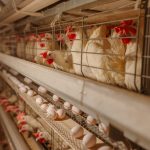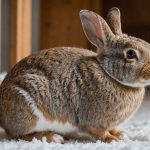From dogs to cats, birds to fish, and yes, even raccoons – the variety of animals we consider pets is as diverse as the foods they eat. But feeding a raccoon isn’t as simple as filling a bowl with kibble. As raccoons are omnivorous, they require a diet varied in meat, fruits, and vegetables. The task may seem daunting, but this comprehensive guide should help you ensure a balanced and nutritional diet when feeding your pet raccoon.
Learning About Raccoons
Before diving into the diet specifics, it is crucial to understand the biological and environmental factors that influence a raccoon’s dietary needs. Unlike dogs, which have been domesticated over thousands of years, raccoons are still very much wild animals. This means their nutritional needs are closely tied to their natural diet in the wild.
Lire également : What are the safety precautions for taking a pet ferret to a UK public park?
Raccoons are known for their adaptability, which is reflected in their diverse diet. As omnivores, they eat a range of foods including insects, fruits, nuts, and small animals. Urban raccoons have even been known to forage in garbage cans. However, this doesn’t mean your pet raccoon should eat like a stray.
Formulating a Balanced Diet
A balanced diet for pet raccoons includes meat, fruits, vegetables, and small amounts of grains. It’s important to remember that while raccoons in the wild eat a variety of foods, they aren’t necessarily getting all the necessary nutrients from their diet. Domesticated raccoons, on the other hand, depend on their owners for their nutritional needs.
Cela peut vous intéresser : How to create a safe indoor environment for a pet rabbit during the British winter?
Start with protein. Raccoons require a large amount of protein in their diet, which should make up about 40% of their meal. This can be sourced from cooked poultry, fish, or insects.
Next, incorporate fruits and vegetables. These should make up about 50% of the diet. They provide essential vitamins and minerals, as well as fiber for healthy digestion.
Lastly, include small amounts of grains. While not a major part of a raccoon’s diet in the wild, grains can provide necessary carbohydrates. However, they should only make up about 10% of the diet.
Understanding Potential Health Risks
While a diverse diet can provide a balanced nutritional intake, it’s important to be aware of potential health risks associated with certain foods. Just like dogs and other pets, raccoons can also be sensitive or allergic to certain types of food.
Some foods, like chocolate and avocado, are toxic to raccoons and should be avoided at all costs. Others, like dairy products, can cause digestive issues. Even foods that may seem healthy, like grapes and raisins, can lead to kidney failure in raccoons.
Additionally, processed foods and those high in sugar should also be avoided. These can lead to obesity and other health problems in raccoons, just as they do in humans.
Supplementing the Diet
While a balanced homemade diet can provide most of the necessary nutrients, raccoons may still require supplements to meet certain nutritional needs.
One such nutrient is taurine, an amino acid that raccoons cannot synthesize on their own. Taurine deficiency can result in serious health problems, like blindness and heart disease. Therefore, taurine supplements or taurine-rich foods, like heart meat, should be included in the diet.
Calcium is another essential nutrient that may need to be supplemented. While raccoons can get some calcium from their diet, they often require more than what’s naturally provided.
Monitoring and Adapting the Diet
A successful diet is one that keeps your raccoon healthy and satisfied. Therefore, it’s important to regularly monitor your raccoon’s health and adjust the diet as needed.
Weight is one of the easiest indicators of health. A healthy adult raccoon should weigh between 10 and 30 pounds, with females typically weighing less than males. If your raccoon gains or loses weight suddenly, it may be a sign that the diet needs adjustment.
Other indicators of health include coat condition, energy levels, and overall behavior. Changes in these areas can also signal nutritional deficiencies or other health problems.
Remember, every raccoon is unique and may have different dietary needs. Your raccoon’s diet will likely require tweaking and adjusting over time. But with proper care and attention, you can ensure your pet raccoon receives a balanced, nutritional diet.
The Effect of Homemade Diets versus Commercial Pet Food
While many pet owners, including those owning dogs and cats, opt for commercial pet food, a homemade diet can offer several advantages for your pet raccoon.
Unlike commercial dog food or cat food, a homemade diet allows pet parents to have full control over the ingredients, making sure there are no harmful preservatives, artificial colors, or additives. However, it’s worth noting that not all commercial pet foods are harmful. Some brands offer high-quality, balanced nutrition for companion animals.
Despite the control over ingredients, a homemade diet can be challenging to balance correctly. A common mistake among pet owners is over-reliance on a single type of food, like raw meat. While raw feeding can be part of a balanced diet, it should not be the only component. Raccoons need a variety of foods to ensure they are getting all the necessary amino acids, vitamins, and minerals.
For instance, feeding a raccoon only raw meat could lead to calcium phosphorus imbalance, as meat is high in phosphorus and low in calcium. This imbalance could lead to bone problems in both adult raccoons and their young.
The key is to find a balance. Whether you choose to feed your raccoon a homemade diet, commercial pet food, or a mixture of both, remember that variety is essential. Make sure your pet is getting a mix of protein from meat, fiber from fruits and vegetables, and carbohydrates from grains.
Conclusion
While raccoons make for unusual pets, with the right care and attention, they can be just as fulfilling to have as dogs or cats. They may not be able to eat dog food or cat food, but a balanced, nutritious diet is within reach for dedicated pet parents.
Feeding a raccoon involves more than just raw meat or a single type of pet food. It requires understanding the animal’s unique nutritional needs, monitoring its health for any signs of deficiencies or health problems, and adjusting the diet as needed.
Remember, being a pet owner – whether of dogs, cats, or raccoons – is not just about feeding and caring for an animal. It’s about creating a nurturing environment where they can thrive. This includes providing not just the right diet, but also enough exercise, mental stimulation, and of course, love.
Pet ownership is a commitment, but with the right approach and dedication, you can ensure your pet raccoon – or any other pet, for that matter – has a healthy, happy life.






